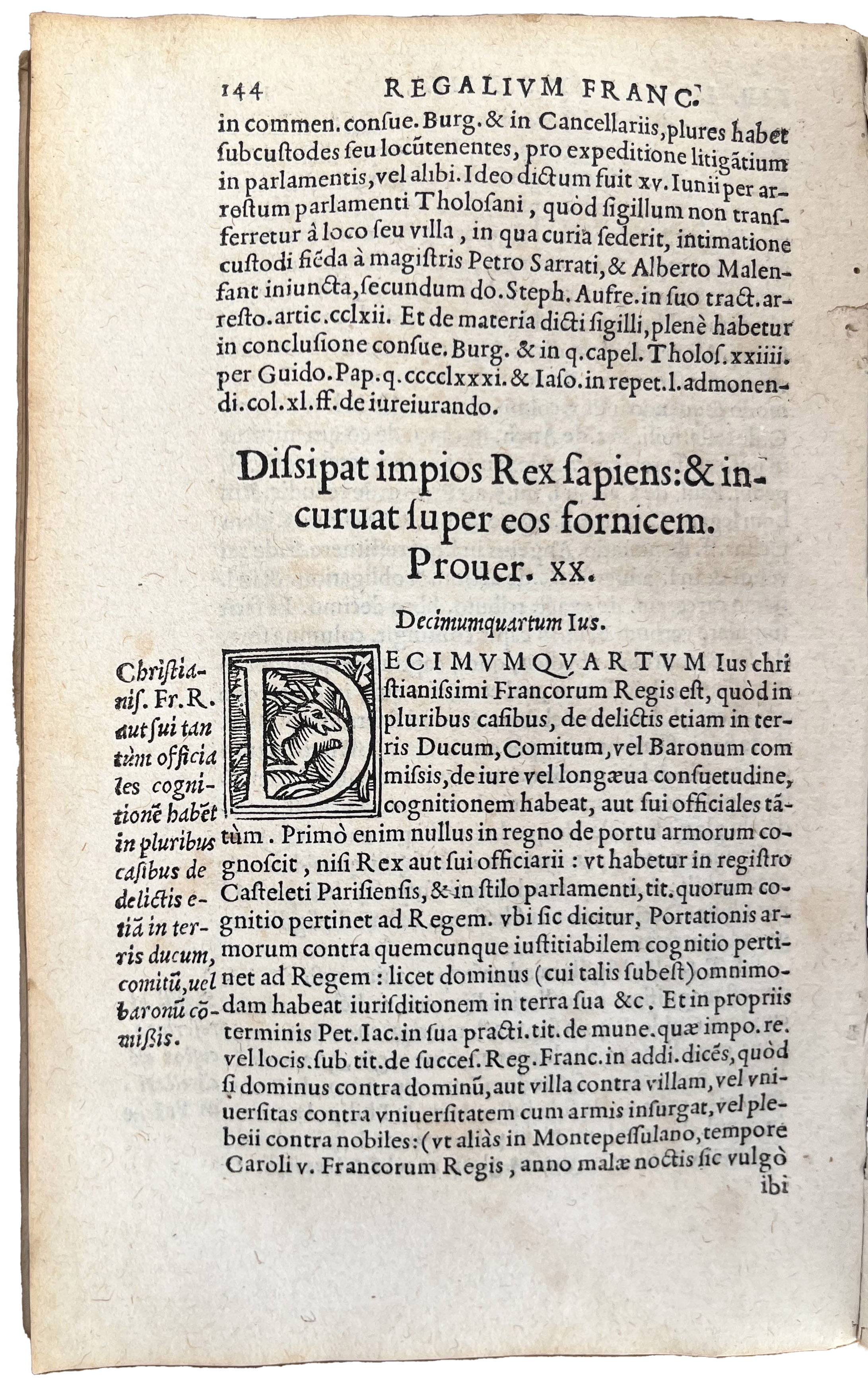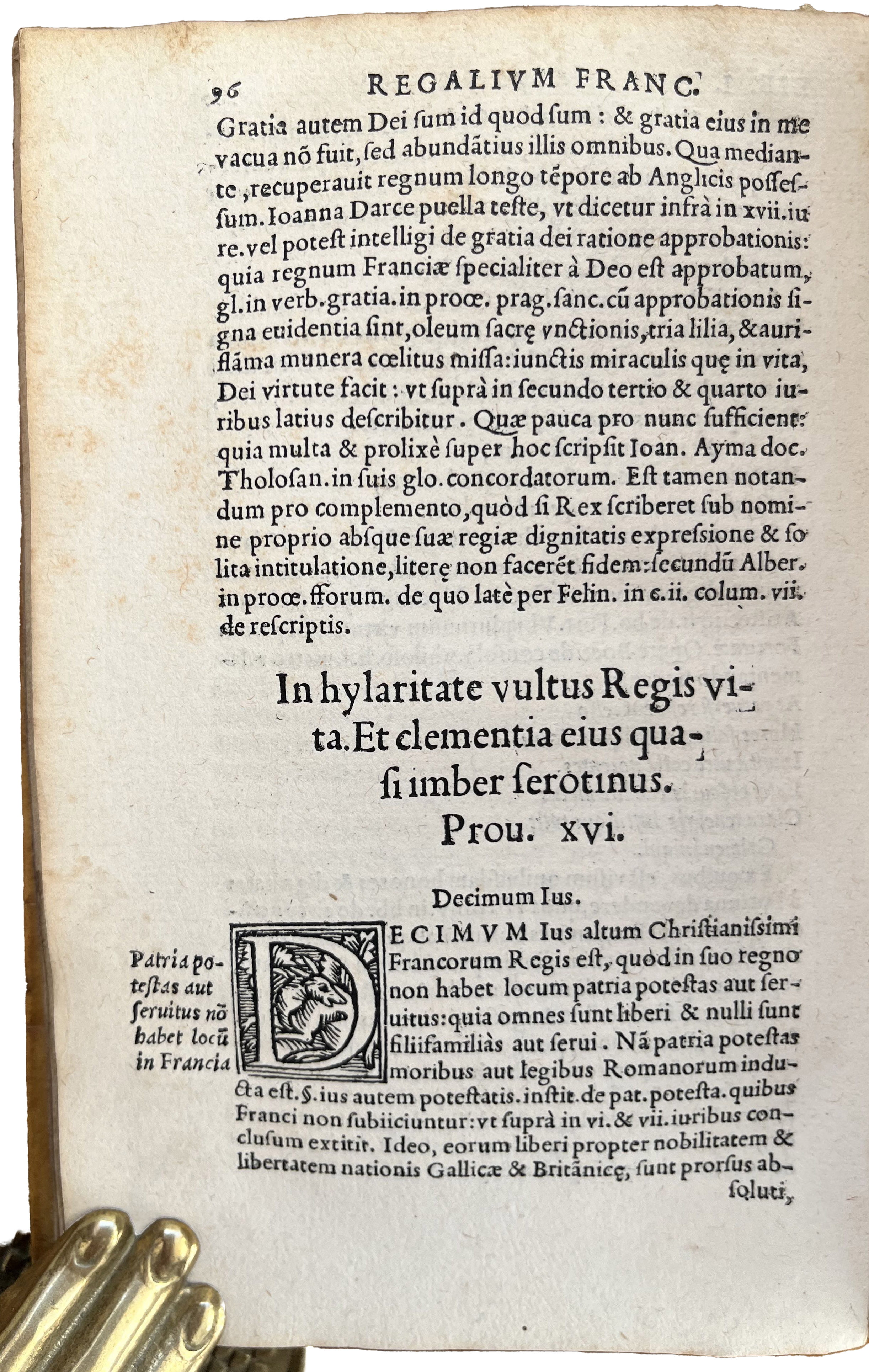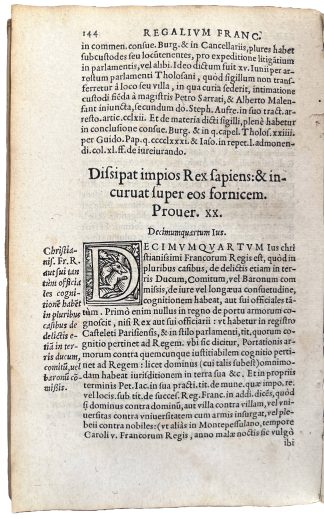GRASSAILLE, Charles de.
Regalium Franciae libri duo.
Paris, apud Poncet Le Preux, 1545.£1,450.00
8vo. pp. [xvi] 351 [i]: a8, A-Y8. Roman letter, some Italic. Woodcut crowned arms of the kings of France on title, historiated woodcut initials, woodcut of the king enthroned with his advisors on the first page of the second part, very charming full page white on black criblé printer’s device on verso of last. Light age yellowing, some minor spotting in places, small worm trail to blank inner margin in one gathering, autograph cut from blank head of title page, a few ll. partly waterstained, mostly marginal. A good copy in contemporary limp vellum, holes for ties, a little soiled.
Second edition of this important political and legal treatise, one of a new generation of works, inspired by Jean Ferrault’s ‘Insignia peculiaria’, that postulated Royal absolutism in France. “Scholars have generally given only passing attention to a 24-folio booklet in Gothic characters entitled ‘Insignia pecularia christianissimi Francorum regni numero viginti’ the work of an early sixteenth-century French writer, Jean Ferrault. Few books, however, are more important than Ferrault’s for a clear understanding of the period of rising absolutism which extends from the first years of Francis I’s reign to the beginning of the religious wars. Indeed, as Henri Hauser puts it, Insignia pecularia constitutes the point of departure of Gallican and royalist doctrine in France. … … After its first publication .. Insignia pecularia was the model that inspired the theorists of absolutism for over a quarter of a century. Barthélémy de Chasseneuz in his Catalogus gloriae mundi (1528) completes Ferrault’s twenty privileges and enumerates 208 regalia, or cases, in which the king is sovereign. It is true, however, that he gives up Jean Ferrault’s strict particularism. The privileges he enumerates do not belong solely to the king of France, but to all kings. However, Chasseneuz describes, as did Ferrault, the king’s rights in dealing with the Gallican church as a delegation of the pope’s supreme power. In 1538, Grassaille’s Regalium Franciae libri duo further pursues the task undertaken by Ferrault. The privileges are there grouped in two books of twenty chapters each. The first book deals with secular matters and the second concerns the relations between the king and the church. Significantly, the author uses as little as possible the word privilege and replaces it by ‘right’ (jus’). There is a definite tendency in Grassaille’s treatise to present the king’s rights as normal powers and not as pontifical favors. The theory of the king’s ‘filial obedience’ to the pope (p. 63) as opposed to the normal obedience owed by other princes, and the author’s insistence on the ‘irrevocable’ character of the titles granted by the Holy See, lack, regarding the papacy, the deferential tone and grateful accents of the Insignia peculiaria” Jacques Pujol ‘Jean Ferrault on the King’s Privileges: A Study of the Medieval Sources of Renaissance Political Theory in France’. This second edition of Grassaille’s work has an appendix that reprints the text of the ‘Insignia pecularia’ in its entirety. Grassaille effectively advances the theory of a marriage uniting the king and his country. In it he declares that the king’s power over the kingdom and over the tax authorities is none other than that enjoyed by the husband over his wife’s dower. A most interesting and influential work whose politics were effectively put in place on the accession of Henry II.
USTC No. 149470. Pettegree 72446.In stock






